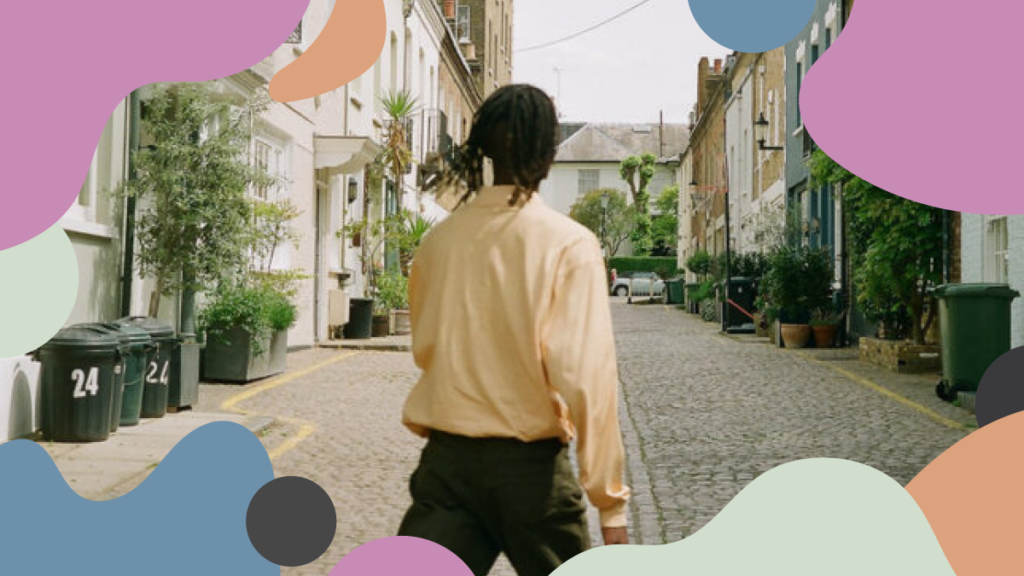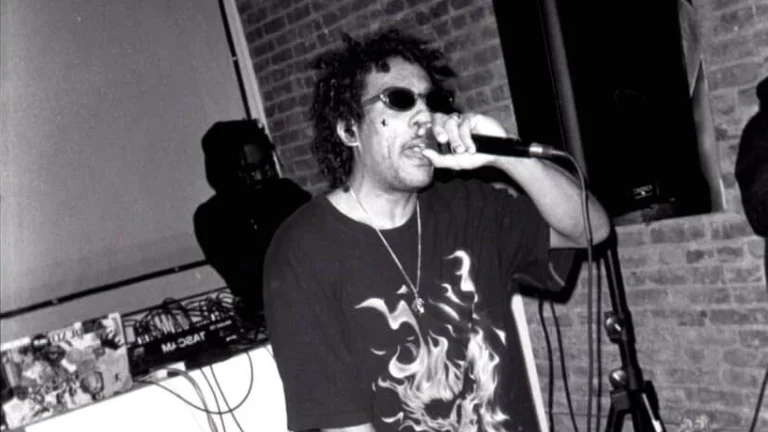Contour is a master of sound who allowed us to release a CD/DVD package of his album and accompanying short film called Softer a little over three years ago. Based out of South Carolina, the multi-talented producer has always leaned into experimentation with new sounds. When I first discovered his music, he leaned a lot more towards hip-hop and since then his sound has expanded into a beautiful fusion of jazz, soul, and more. Contour has developed a signature sound defined by luscious soundscapes, jazzy swinging drums textured with detail, and unique echoing vocals. I spoke to him about his last project, Weight, that came out in March, as well as his latest two songs, “Go Away,” (a cover of a Strawberry Switchblade song) and “Sweet Tears” (a cover of a Roy Ayers song).
Part of this interview was conducted in May, and the other part was conducted a week ago.
What inspired you to begin making music?
A desire to express myself in a way that felt unique and thorough to me, as is the case for most people I figure.
What instruments do you play and how long have you been producing?
Bass for 3 or 4 years now and piano for most of my life, although I’ve started to take it more seriously in the past year. I’ve been producing seriously since 2014, so we’re at just about 6 years now.
Were they any specific influences for your approach when working on Weight?
The struggle of refining said approach was an influence. As well as the always present struggle of maintaining mental equilibrium.
At under 15 minutes, Weight covers a lot of ground instrumentally and lyrically. Can you tell me more about the writing process and what this project means to you?
This is a common answer, but it’s a snapshot of my headspace for the latter half of 2019 and beginning of 2020. It’s pretty self-referential. It’s also a meditation on the literal weight of emotion and the different ways we navigate the emotional experience.
What’s your creative process like with your band? Do you have different interpretations of solo Contour work with your band?
Absolutely. I write a song and I bring it to them and we decide if we think it will translate well to the live format. From that point, we think specifically what parts of the composition will translate and which parts need to be adjusted. Often times that process helps me refine the writing process of the recorded versions of songs as well.
Many of your releases come alongside beautiful art direction work. Where does this passion stem from and can you shine some light on some artists that you’ve worked with on this side of your projects?
The passion stems from both a love of visual art and film and necessity. The presentation of a work is literally a part of the piece in the sense that it creates the context for viewers to engage with the work. That doesn’t mean everything is super conceptual but it means there’s at least a level of intentionality involved. I primarily work with my friend Austin Butler on art direction and my friend John Peters on film direction. They have a deep understanding of how I think and that helps a lot with fleshing these things out. I’d love to continue to branch out and collaborate on that side of things more though as I continue to create.
Are there any other mediums of art you want to experiment or learn on your own?
I’d like to do more photography and film scoring as well. When I’m able to I’d like to get a camera and handle the shooting of my videos and other things completely on my own.
You just released two new tracks, “Go Away” and “Sweet Tears,” which are both covers, but pretty solely in lyrics. Why did you choose these songs by Strawberry Switchblade and Roy Ayers and what was your approach to these covers?
I’m a blues musician at heart. Solemnity has colored my experience of the world as long as I can remember. I resonate with works that deal with that experience. For the SS joint, I actually did a few versions once I had learned the chord progressions. I started with what you hear on guitar, which is the primary melodic motif. Then I built around that for the verse. I deviated from the composition of the original for the pre-chorus and chorus to make it sound more me. The Roy Ayers one was more straightforward. I learned the song on piano and then just kind of made everything else naturally around it. The vocals were the hardest part for that one because the original performance really only works with that kind of upbeat instrumentation. I had to figure out how to make the amount of space I was working with work.
You’re donating all proceeds from these two tracks to The Black School. Can you tell me a little bit more about why you chose The Black School?
I experienced a lot trauma in white instructions/art schools intended to be for gifted children. Some of that trauma I’ve worked through, and some I still carry. I can only imagine what my formative years would’ve looked like if I was a part of institution centered around radical Black self love and nourishment. The Black School is endeavoring to provide that, and as much of a cliche as it is I’m very emotional about the idea of young Black children not having to go through what I and I’m sure many others have gone through.
You released these on July’s Bandcamp Day where Bandcamp waived all of their fees for 24 hours to support artists. What are your thoughts on Bandcamp as a platform and how it coexists alongside streaming platforms?
As far as I’m concerned Bandcamp is the only platform that lends itself to artists’ self determination. Other streaming services not only is manipulate their listenership psychologically, but they have tried and have somewhat succeeded at creating a kind of hegemonic control of how artists careers are launched. This is intentional, and many artists have no choice but to play into that. Bandcamp’s model puts the distribution, revenue, aesthetic, just about everything in the artists hand. It was already the most equitable platform and the ownership has really stepped up with this new initiative. Many artists have made more on one Bandcamp day than they have in years of streaming.
What music have you been listening to a lot lately?
Honestly, for the first time maybe ever I haven’t been listening to much. I’ve been reading more lately and I don’t often read and listen to music at the same time, and I kind of have just been enjoying complete silence when I’m not working on things.
What are you currently reading?
I just finished Thick by Tressie McMillan Cottom. I’m now cycling through Black Music by Amiri Baraka and Black Feminist Thought by Patricia Hill Collins. I’ve also been reading a lot of various poetry and manga.
What’s next for Contour?
More music. Sooner than later.





